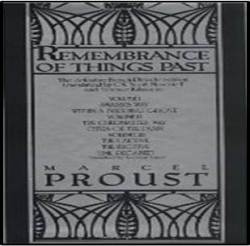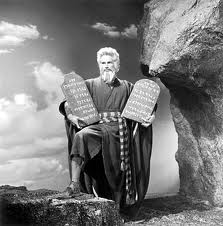 It has been a very difficult few weeks for so many millions of people, particularly in New York. Two weeks ago we were reeling with shock – we are still reeling with shock – at the news of the horrific murder of two little children Leo and Lucia Krim, at the hands of their nanny.
It has been a very difficult few weeks for so many millions of people, particularly in New York. Two weeks ago we were reeling with shock – we are still reeling with shock – at the news of the horrific murder of two little children Leo and Lucia Krim, at the hands of their nanny.
For all of those who are parents or grandparents, all who love children, this was so very hard and difficult – a tragedy that sickens, but also that comes so close to home. The protective bubble, the lifestyle that we have built in this neighborhood and city (that is truly such a special place), that cocoon that we build for our families (including trusted nannies) – we realize that it’s not a bubble, or a wall, or a solid foundation, but rather, like so much, is just so thin, such a fragile thing. Then there is the fragility, the vulnerability, the realization that what we thought was so solid – homes, brick walls, neighborhoods – was anything but. And then the realization that what we relied upon – power, light, heat – could be cut off (and still not return for two weeks). Our pleasant, ordered, reliable world (in the strongest, most prosperous city in the world) became anything but reliable. This has been deeply, deeply disconcerting. And that it could take weeks longer is just unbelievable.
I spent a day this week in Far Rockaway, doing some volunteering at JASA, a social services agency that operates a complex of 25-story tower blocks full of elderly Russian Jewish immigrants. These are solid built buildings so there was no sign of water damage, but there is no heat or light, save a small amount from emergency generators, and there are no elevators. Our task was to try and persuade residents to leave for shelters, particularly before Wednesday’s storm.
I met one elderly Russian man and we communicated in a mixture of languages. “I was in the Russian army,” he said, “and cold doesn’t bother me.” So I said, “You are not in Russia now, this is America!” And he said, “No. This feels like Russia to me.” And, it is indeed. Disorientating, frightening, to see how quickly our security, our comforts, all the things we rely on, fail.
I want to speak this week about how we talk to children about disaster, but I hope the words are somehow applicable to all of us, whether we are parents of small children or not. How do we help bring up our children? How do we support others in our lives? How do we find the resources, ourselves, to cope with so much pain, tragedy and uncertainty? The world can be a scary place – how can we learn coping skills?
I’ve often been fascinated by the parsha of Chaye Sarah. However much you look at it, it’s an anticlimax from earlier in the Torah. Last week’s parsha had so much: the Angels, destruction of Sodom and Gemorrah, the birth of Yitzchak, the sending away of Yishmael, treaties and kings, and, finally , Akeidat Yitzchak.
That’s a parsha!
This week, Chaye Sarah, we have a funeral, a wedding, another wedding, and another funeral. We have some water and some camels, and that’s it. (With the exception of the camels, it sound like my typical Sunday!)
Why couldn’t the parsha have been divided up differently? Why not throw in some action? Perhaps hold the akeidah over from last week?
I think the answer is that we should never lose sight of the importance of the humdrum, the routine, the ordinary aspects of life. Of course, weddings and funerals are not exactly routine, but they happen, they are part of the rhythm of life. Everything in last week’s torah reading is larger than life, everything in this week’s is … predictable.
I spoke last Shabbat about how Avraham Avinu, at each one of these awesome moments, demonstrates the chesed, kindess, that, at times of super human challenges, is to be performed
Chaye Sarah gives us no less of an important message: In ordinary life, day to day life, a funeral, seeking a partner for marriage rather than money or looks or anything else, Chesed is the sole criteria.
Chesed is not just what we do when hurricanes and tsunamis and wars (G-d forbid) happen, rather it is what we do every day of our lives. That is the message of Chaya Sarah, indeed the life of Sarah Imenu.
In reading and thinking about speaking to children about disasters, some common themes emerge: Don’t make children frightened, don’t tell them why they should be worried, always try to be calm and reassuring. Most importantly, don’t talk, listen. Allow children to express their fears and their concerns, to give voice to, rather than to bottle up, their anxieties. Then you can discuss them. We can reassure, offer love and support, but we can never, ever promise that bad things will never happen.
One of the themes is the importance of stability, routine, security. When life changes, not everything has to change. Familiar routines, meal times, bed times, and indeed shabbat, davening, bentshing, become life lines.
That is, indeed, a hidden part of the life of Avraham and Sarah.
We have to be careful about analyzing the Avot and Imahot. We have to be careful of turning torah narratives into psychological (or pop psychology) case studies, particularly because the torah doesn’t tell us anything about these people’s real inner lives and relationships. Consider the following: the Torah recounts not one conversation between Sarah and Yitzchak, her only son! Not one! Does this mean that they did not speak? Of course not, but the torah deals with other issues. We can say with certainty that, upon her death, Yitzchak mourned his mother, grieved for her deeply and sorrowfully.
When Yitzchak married Rivka, and took her into his mother’s tent, the Torah tells us, poignantly:
וַיִּנָּחֵם יִצְחָק, אַחֲרֵי אִמּוֹ
And Yitzchak was comforted for his mother.
Yitzchak mourned his mother, because we are told that he was, only later, comforted from her passing. But how did that comfort work?
Let us remember. Yitzchak, a young man (maybe a child) , is woken early one morning by his father, roused from his warm bed and out in to the cold night. Akeidat Yitzchak, that searing, terrifying ordeal, is a test of faith for the two of them.
Yitzchak never saw his mother again, she died when she heard what had happened. His life had turned tragic. We can not imagine what Yitzchak Avinu endured in those years. We know one thing – apparently, he withdraws from the world. After the Akeidah there is no mention of him. There is no mention that he came off the mountain, no mention that he was at his mother’s funeral. His father doesn’t even raise the question of marriage with him directly, he sends his servant to find him a wife. Yitzchak is surely the model of the trauma victim: withdrawn, scarred, deeply affected.
And here is the unexpected thing: Yitzchak goes on to have an astonishingly successful life. He marries. He sustains relationships. Even his difficult child Eisav (who would try any parent) he loves and is loved until the end. Yitzchak works, he prospers, he carries on. He develops and betters his father’s work. He remains loyal to G-d and his father, and he prospers and succeeds in unimaginable ways. He is, as we will see in next week’s parsha, a multi-millionaire: worldly, conversant with G-d, friend of kings.
What happened? What saved Yitzchak from the scars that made him almost disappear from the torah text?
There is only one answer.
His mother!
As Yitzchak marries, we are told:
וַיְבִאֶהָ יִצְחָק, הָאֹהֱלָה שָׂרָה אִמּוֹ
And Yitzchak brought her to the tent of Sarah his mother.
Rashi says, it doesn’t mean, literally, Sarah’s tent, but rather this tent became like Sarah’s tent. That tent had been characterized as a unique place. As Rashi describes it:
שכל זמן ששרה קיימת היה נר דלוק מע”ש לערב שבת וברכה מצויה בעיסה וענן קשור על האהל ומשמתה פסקו וכשבאת רבקה חזרו
For as long as Sarah was alive, a candle burned from one Sabbath eve to the next, a blessing was found in the dough, and a cloud was attached to the tent.
The possibility of nechama, of comfort, of going on to be able to sustain relationships, build a family and a career came because Yitzchak had been raised in Sarah’s tent.
As we have seen, the most important thing we can all do (and especially for our children) at time of tragedy, when we hear bad news or live through terrible events (like 9/11 or awful hurricanes and disasters), is to be as consistent as possible. To give the security that comes from keeping life together as much as possible.
In Sarah’s tent, no matter what storms were raging outside, no matter what else was happening, there was a safe place. The candles burned (all week), the dough baked (all week), the cloud hovered (all week).
This is so important for psychological health. Being able to cope with upheavals is to keep everything else constant.
But let’s look a little deeper.
Shabbat candles symbolize Shalom Bayit,peace in the home.
Even in times of crisis there was peace, serenity. Sometimes parents inadvertently frighten their children because of their own anxieties. But in Sarah’s tent, there was peace – not shouting nor anxiety.
Dr David Pelkowitz speaks about a child, one of a set of twins of about 5 or 6. After 9/11 the boy was frightened for months and months and eventually the boy was taken to speak to a therapist. The therapist asked: “What makes you frightened?” and the child answered: “I keep hearing about the twin towers being destroyed. Why do people hate twins?” What we say, and what kids hear, and what they pick up on, is so important.
And the bread/dough was always blessed.
I think this means that there was reassurance that meals would be served, guests entertained. The home was a place of routine, but also of Chesed. The dough that Sarah made was baked to be shared, to be given away.
One of the most effective things we can do as communities, and even more as families, is Chesed. We have to respond. Not only is it a mitzvah, but also, doing Chesed helps to reassure us that, if the worst happened, we wouldn’t be on our own.
This week, in Far Rockaway, I visited the Shar Yoshuv yeshivah, which, thanks to the incredible Chesed organization Achiezer, has been turned into a staging area for all sorts of much needed services. I saw a family with small children come in and start to look for warm clothes. It was a very sad sight, but I was comforted by one thing. For any active, communally involved Jew it didn’t look like a clothing give away, it looked like a(n only slightly) disorganized shul Chanukah gift fair. If you are part of a community, then if you ever need to take, it’s so much easier, so much safer and less jarring, when the Jewish community is your family.
Margaret Thatcher famously remarked that in all of her years as Member of Parliament for Finchley, a very Jewish neighborhood in London, no Jew ever came to her for financial assistance. It was understood that the Jewish community looks after each other. I was always brought up knowing two things: if Jews were in trouble in Europe, we could go to Israel; if a Jew was ever overtaken by poverty, the community would help.
And lastly – the cloud hovered over the Tent of Sarah.
The cloud represents the shechinah, the Divine Presence. And the shechinah dwells only in a place of simcha, of happiness. Sarah’s tent was not a fraught, tense place, rather it was a place where people laughed and were at ease, relaxed, at home, safe and secure. It was a place where you felt the love of G-d, and the love of parents.
I am not a very good parent and so I don’t normally talk about parenting. But there is one thing I try to do. When I see that kids are having a tough time at school, or with friends or whatever, I always say to them: “No matter what, whatever happens to you at school or outside, never, ever forget that you have parents and grandparents who love you and who think the world of you, and who know how so very special you are.”
That’s how I was raised. Whatever challenges I faced, I always felt I was somebody special, because I mattered to somebody.
And that’s what we need to do.
In these difficult, tense times, when we are so aware of how vulnerable we are on so many levels, our job is recreate Ohalei Sarah, tents of Sarah. To build homes and communities – safe, warm, welcoming and reliable places, places of peace and serenity, places of warmth and Chesed, and most of all, places of unconditional love.







